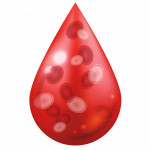The elevated mortality risk resulting from injection drug use among people with HIV is substantially explained by hepatitis C virus (HCV) coinfection among that population. Publishing their findings in the Journal of Acquired Immune Deficiency Syndromes, researchers examined data on 32,703 HIV-positive people in 16 European and North American cohorts who started antiretroviral treatment between 2000 and 2009 and who were followed for three years.
A total of 3,374 (10 percent) of the cohort were injection drug users (IDUs); 4,630 (14 percent) were coinfected with HCV; and 1,116 (3.4 percent) died.
The IDUs had a 2.71-fold greater likelihood of death than non-IDUs. The coinfected individuals were 2.65 times more likely to die than those infected with HIV alone.
After factoring out hep C coinfection, injecting drugs was linked to a 1.57-fold greater risk of death. After factoring out injection drug use, hep C was linked to a 2.04-fold increased risk of death.
Having hep C was linked to a 10.89-fold increased risk of liver-related death, while being an IDU was linked to a 14-fold increased risk of such a death. After factoring out hep C coinfection, being an IDU was linked to a 2.43-fold increased risk of liver-related death. After factoring out injection drug use, HCV coinfection was linked to a 7.97-fold increased risk of such a death.
The researchers concluded that a “substantial proportion of the excess mortality in HIV-infected [IDUs] is explained by HCV coinfection.”
To read the study abstract, click here.
Advertisement
Advertisement
Advertisement






Comments
Comments